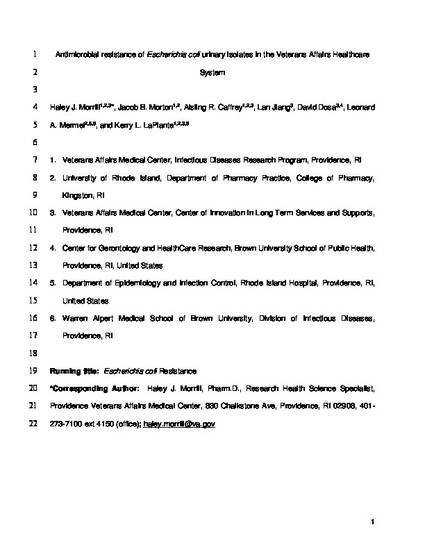
We reviewed data for almost 300,000 clinical Escherichia coli urinary isolates (collected in 2009 through 2013) from 127 inpatient and outpatient facilities, to assess antibiotic resistance among Veterans Affairs health care system patients using Clinical and Laboratory Standards Institute and Centers for Disease Control and Prevention National Healthcare Safety Network definitions or guidance. Rates of resistance to amoxicillin or ampicillin/β-lactamase inhibitors were approximately 40% and rates of resistance to fluoroquinolones and trimethoprim-sulfamethoxazole approached 30%. Rates of resistance to nitrofurantoin, antipseudomonal penicillin/β-lactamase inhibitors, and carbapenems remained less than 10%. The percentage of isolates that were considered multidrug resistant varied (4% to 37%), depending on the definitions used.
Morrill HJ, Morton JB, Caffrey AR, Jiang L, Dosa D, Mermel LA, LaPlante KL. Antimicrobial resistance of Escherichia coli urinary isolates in the Veterans Affairs Healthcare System. Antimicrobial Agents and Chemotherapy 2017; 61(5):e02236-16. doi: 10.1128/AAC.02236-16
Available at: http://dx.doi.org/10.1128/AAC.02236-16
